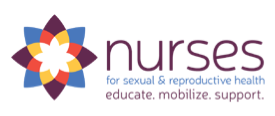This webinar from the Reproductive Health National Training Center offers family planning providers an opportunity to learn what IPV can look like; how it affects a person’s overall and reproductive health; and how to practice an inclusive approach to assessment and response to ensure more clients experiencing IPV receive the support they need.
Watch this four-part series geared toward healthcare providers about the domestic violence screening experience, listening to your patient, building relationships, and more from domestic violence survivors.
The NCTCFP speaks with Liz Miller, MD, PhD from the University of Pittsburgh about teen dating violence and how family planning clinicians can address it in their practices.
In this three-part webinar, psychology professor Dr. Rebecca Campbell explains the neurobiology of sexual assault trauma. The presentations discuss the body and brain response to trauma and implications for improved response to sexual assault.
In this webinar, PreventConnect, the National Resource Center on Domestic Violence (NRCDV), and CDC researchers discuss the long-term economic cost of intimate partner violence and implications for prevention policy and practice.
From the Reproductive Health National Training Center, a video series of brief provider-client interactions which illustrates how to apply different components of the Confidentiality, Universal Education + Empowerment, and Support (CUES) intervention in response to intimate partner violence. These videos are intended for staff who interface with clients in a clinical setting.
Resources for healthcare providers to improve practice and promote health and safety of survivors of domestic violence.
AFN's mission is to link research to practice through dissemination of scholarship, education and service to those affected by and responding to trauma. They have various continuing education opportunities.
The National Indigenous Women’s Resource Center, Inc. (NIWRC) is a Native-led nonprofit organization dedicated to ending violence against Native women and children. NIWRC develops resources and training opportunities to support Tribes, grassroots advocates, and survivors in prioritizing the safety of Native women and their children and requiring accountability of offenders and communities.
The Institute provides training, technical assistance, web-based education programs, a directory of national trainers and experts, and a clearinghouse of all research related to domestic violence and sexual assault strangulation crimes.
An article that explores the risk factors of IPV, barriers to reporting, and appropriate nursing interventions to promote patient safety.
Reporting can put people experiencing IPV at increased danger from their abuser. This statement by Futures Without Voices provides context and resources to advocate for avoiding and changing mandatory reporting laws for domestic violence.
